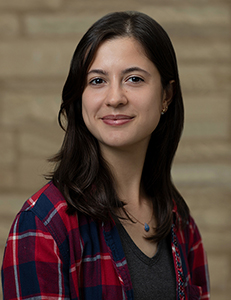Graduate research

Student researcher, Nazlican Arslan designs optimization models to solve key problems in pandemic response
Unpredictable disasters from hurricanes to pandemics are threats to our national security. To help our country better prepare, the U.S. Department of Homeland Security (DHS) is studying how to build response strategies for these types of unpredictable emergencies.
This important research taking place at the Arizona State University (ASU) Center for Accelerating Operational Efficiency (CAOE) in a project titled “Value-Focused Robust Optimization for Disaster Response” (VRFRO). The team features student researcher, Nazlican Arslan who is designing optimization models and algorithms to solve some of the key problems in pandemic response. These challenges include scenarios for vaccine prioritization, equalizing access to vaccines and safely relaxing social distancing measures as vaccines roll out.
In her role, Arslan expanded her knowledge of coding and modeling, while also developing a better understanding of epidemiology and disease dynamics. She said the hidden challenge of this project is finding real-world data to use in the team’s analysis. Despite that obstacle, the team has directly helped the decision-making in Austin, Texas in response to the COVID-19 pandemic.
Arslan is currently pursuing her doctoral degree in industrial engineering and management sciences at Northwestern University. After graduation, she would like to work as a research scientist. She credits this project with expanding her knowledge of data-driven analysis and solution methods while sharpening her critical and analytical thinking skills. “It was fascinating to see the methods, algorithms and technical knowledge I learned in her studies used in practice to make a direct impact on policy making,” she explained.
Her friends and family are excited about her research on the team and proud it is having a direct impact on decision-making in the current pandemic. “Our project will help create robust and data-driven solution to current and future pandemics,” she noted
